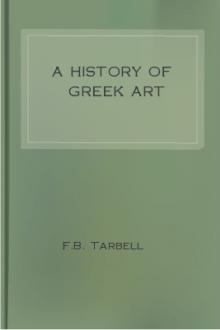Genre History. Page - 8

ere at present living.
Besides carrying out the wishes of his patroness, Ben intended to try his hand at mining, and had employed the interval of three weeks since he discovered Mr. Dewey in working the latter's claim, with the success already referred to.
The time when the two friends are introduced to the reader is at the close of the day, when, fatigued by their work on the claim, they are glad to rest and chat. Mr. Bradley has a pipe in his mouth, and evidently takes considerable comfort in his evening smoke.
"I wish I had a pipe for you, Ben," he said. "You don't know how it rests me to smoke."
"I'll take your word for it, Jake," returned Ben, smiling.
"Won't you take a whiff? You don't know how soothin' it is."
"I don't need to be soothed, Jake. I'm glad you enjoy it, but I don't envy you a particle."
"Well, p'r'aps you're right, Ben. Our old doctor used to say smokin' wasn't good for boys, but I've smoked more or less since I was twelve years old."

assassination plot, and were as vehement of their denunciations of its authors as were the Whigs, remained staunch in their fidelity to "the king over the water," maintaining stoutly that his majesty knew nothing whatever of this foul plot, and that his cause was in no way affected by the misconduct of a few men, who happened to be among its adherents.
At Lynnwood things went on as usual. Charlie continued his studies, in a somewhat desultory way, having but small affection for books; kept up his fencing lesson diligently and learned to dance; quarrelled occasionally with his cousin Alured, spent a good deal of his time on horseback, and rode over, not unfrequently, to Rockley, choosing, as far as possible, the days and hours when he knew that Alured and his father were likely to be away. He went over partly for his own pleasure, but more in compliance with his father's wishes.
"My cousin seldom comes over, herself," the latter said. "I know, right well, that it is from no slackness of her own,

f a figment of the imagination and no one knew that better than the Company itself. It still retained its monopoly nominally, but it made very little effort to restrain the half-breed and other "free traders" who opened up stores and bartered for furs with the Indians. In any case in one form or other all the trade of the country practically came, in the last analysis, through the Hudson's Bay Company, who controlled the money market by having their own bills in circulation. But the wise old Company saw what was coming and began to get ready to let go its monopolistic fur-trading charter and adjust itself to the new conditions.
Hence it was not a difficult matter to persuade the Company to give up its charter for a consideration. My father, who was a member of the Council of Assiniboia, a magistrate, and a close personal friend of Governor McTavish, who was in charge at Fort Garry on the Red River where settlement had begun, always used to say that the Hudson's Bay Company was glad to find a reasonable

The Civilization which we of to-day enjoy is a very complex thing, made up of many different contributions, some large and some small, from people in many different lands and different ages. To trace all these contributions back to their sources would be a task impossible of accomplishment, and, while specific parts would be interesting, for our purposes they would not be important. Especially would it not be profitable for us to attempt to trace the development of minor features, or to go back to the rudimentary civilizations of primitive peoples. The early development of civilization among the Chinese, the Hindoos, the Persians, the Egyptians, or the American Indians all alike present features which to some form a very interesting study, but our western civilization does not go back to these as sources, and consequently they need not concern us in the study we are about to begin. While we have obtained the alphabet from the Phoenicians and some of our mathematical and scientific developments through the medium of the Mohammedans, the real sources of our present-day civilization lie elsewhere, and these minor sources will be referred to but briefly and only as they influenced the course of western progress.
The civilization which we now know and enjoy has come down to us from four main sources. The Greeks, the Romans, and the Christians laid the foundations, and in the order named, and the study of the early history of our western civilization is a study of the work and the blending of these three main forces. It is upon these three foundation stones, superimposed upon one another, that our modern European and American civilization has been developed.

ster's "Denkmaler des klassischen Altertums," they have been credited to their original sources. A few architectural drawings were made expressly for this work, being adapted from trustworthy authorities, viz.: Figs. 6, 51, 61, and 64. There remain two or three additional illustrations, which have so long formed a part of the ordinary stock-in trade of handbooks that it seemed unnecessary to assign their origin.
The introductory chapter has been kindly looked over by Dr. J. H. Breasted, who has relieved it of a number of errors, without in any way making himself responsible for it. The remaining chapters have unfortunately not had the benefit of any such revision.
In the present reissue of this book a number of slight changes and corrections have been introduced.
Chicago, January, 1905.
CONTENTS.I. ART IN EGYPT AND MESOPOTAMIA II. PREHISTORIC ART IN GREECE III. GREEK ARCHITECTURE IV. GREEK SCULPTURE--GENERAL CONSIDERATIONS V. THE ARCHAIC PERIOD OF GREEK SCULPTURE, FIRST HALF:

f making a wrong deduction from the phenomenonof the calcination of the metals, because of a very importantfactor, the action of the air, which was generally overlooked.And he urged his colleagues of the laboratories to give greaterheed to certain other phenomena that might pass unnoticed in theordinary calcinating process. In his work, The Sceptical Chemist,he showed the reasons for doubting the threefold constitution ofmatter; and in his General History of the Air advanced some noveland carefully studied theories as to the composition of theatmosphere. This was an important step, and although Boyle is notdirectly responsible for the phlogiston theory, it is probablethat his experiments on the atmosphere influenced considerablythe real founders, Becker and Stahl.
Boyle gave very definitely his idea of how he thought air mightbe composed. "I conjecture that the atmospherical air consists ofthree different kinds of corpuscles," he says; "the first, thosenumberless particles which, in the fo

reedom of its people.
[Illustration: My First Drunk]
Some of the slaves, like us, had kind and indulgent masters. These were lucky indeed, as their lot was somewhat improved over their less fortunate brothers, but even their lot was the same as that of the horse or cow of the present day. They were never allowed to get anything in the nature of education, as smart negroes were not in much demand at that time, and the reason was too apparent, education meant the death of the institution of slavery in this country, and so the slave owners took good care that their slaves got none of it.
Go and see the play of "Uncle Tom's Cabin," and you will see the black man's life as I saw it when a child. And Harriett Beecher Stowe, the black man's Saviour, well deserves the sacred shrine she holds, along with the great Lincoln, in the black man's heart.
CHAPTER II.
WAR. "THE REBELS AND YANKEES." I RAISE A REGIMENT TO FIGHT. DI

833- -Confirmation of Chladni's hypothesis of 1794--The aurora borealis--Franklin's suggestion that it is of electrical origin--Its close association with terrestrial magnetism--Evaporation, cloud-formation, and dew--Dalton's demonstration that water exists in the air as an independent gas--Hutton's theory of rain--Luke Howard's paper on clouds--Observations on dew, by Professor Wilson and Mr. Six--Dr. Wells's essay on dew--His observations on several appearances connected with dew--Isotherms and ocean currents--Humboldt and the-science of comparative climatology--His studies of ocean currents-- Maury's theory that gravity is the cause of ocean currents-- Dr. Croll on Climate and Time--Cyclones and anti-cyclones, --Dove's studies in climatology--Professor Ferrel's mathematical law of the deflection of winds--Tyndall's estimate of the amount of heat given off by the liberation of a pound of vapor--Meteorological observations and weather predictions.
CHAPTER VI
. MODERN THEORIES OF HEAT AND LIGHT
was any sudden change in the level of mentality of the Roman world at the close of the classical period. We must assume, then, that the direction in which the great minds turned was for some reason changed. Newton is said to have alleged that he made his discoveries by "intending" his mind in a certain direction continuously. It is probable that the same explanation may be given of almost every great scientific discovery. Anaxagoras could not have thought out the theory of the moon's phases; Aristarchus could not have found out the true mechanism of the solar system; Eratosthenes could not have developed his plan for measuring the earth, had not each of these investigators "intended" his mind persistently towards the problems in question.
Nor can we doubt that men lived in every generation of the dark age who were capable of creative thought in the field of science, bad they chosen similarly to "intend" their minds in the right direction. The difficulty was that they did not so choose. Their minds had

re we changed our seven-shilling piece, and had a pint of small beer to help us in again lightening our bundle; and, after about an hour's rest, proceeded on for Poole, about nine miles from Wareham. We felt very tired, but still walked on, and gained our destination at a very late hour, owing to which we had some trouble in obtaining a lodging for the remaining part of the night; but at last we found one in a public house, where we finished our bread and bacon, together with some more beer, the best day's allowance we had had for some time past.
We slept very soundly, and in the morning went round to inquire for service on board the Newfoundland packets. We soon found a merchant of the name of Slade, who engaged us for two summers and a winter, myself for 20l. and my companion for 18l. for the whole time, and our food and lodging till the ship left the harbour. But we were not long in finding that our destination was not to be Newfoundland, for on the very next day my companion's mas